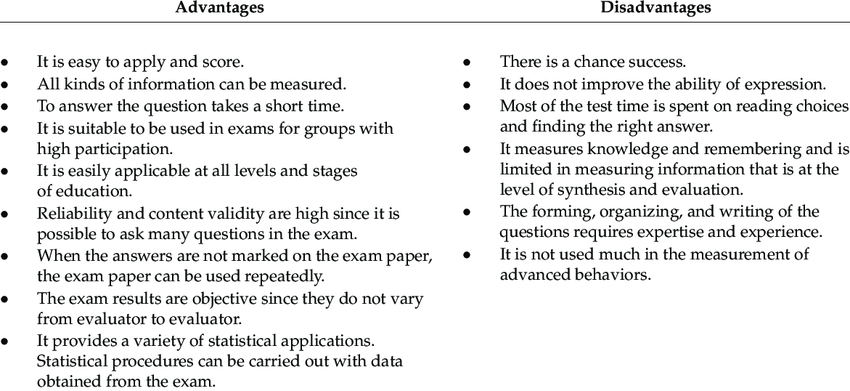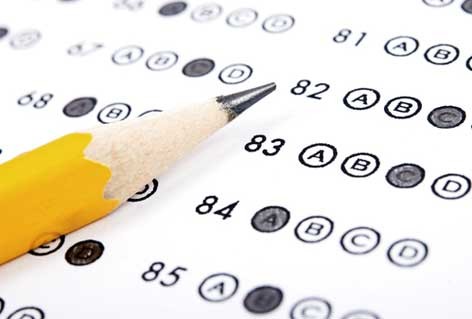A Multiple Choice Question (MCQ) is a type of assessment where a question is presented along with several answer choices. It’s commonly used in exams and quizzes to evaluate a person’s understanding of a subject. Each MCQ consists of a question stem and a set of options, among which only one is the correct answer.
understanding the Importance of Time Management of MCQ
Effective time management is crucial when tackling Multiple Choice Questions (MCQs) in various assessments. Here’s why managing your time well is so important in this context:
- Limited Time: Most exams or assessments have a predetermined time limit. Since MCQs often cover a range of topics, allocating a specific amount of time to each question ensures you can attempt the entire paper.
- Question Volume: MCQ tests typically include a substantial number of questions. Without proper time management, you might spend too long on a few questions, leaving you with insufficient time for others.
- Varied Complexity: MCQs can range from simple recall questions to complex problem-solving scenarios. Effective time allocation lets you handle both straightforward and challenging questions.
- Avoid Rushing: Poor time management might lead to a rushed attempt toward the end, causing errors and negatively impacting your accuracy.
- Review Opportunity: Well-managed time allows you to revisit questions you marked for review. This can help correct mistakes, change answers, or provide a fresh perspective.
- Strategic Guessing: If you’re running out of time, strategic guessing on unanswered questions can potentially earn you some points. But this requires time management to leave room for such actions.
- Reduced Stress: Adequate time management minimizes anxiety, enhancing your focus and performance during the test.
what is the process of checking MCQ questions?
- Initial Review: Start by reading the MCQ question in its entirety. Understand the context, topic, and concepts being tested.
- Verify Question Clarity: Ensure that the question is clear and comprehensible. Verify that the wording is straightforward and that there are no ambiguities that could confuse the test-takers.
- Check Question Structure: Confirm that the question stem is concise and provides all necessary information for answering the question. Avoid convoluted phrasing or excessive details.
- Analyze Answer Choices: Review each answer choice individually. Ensure that they are relevant to the question and cover a range of possibilities. Check that they are of similar length and follow a logical order (e.g., alphabetical).
- Identify Correct Answer: Determine the correct answer choice. Verify that it accurately aligns with the question and represents the intended correct response.
- Evaluate Distractors: Examine the incorrect answer choices (distractors). Ensure they are plausible options that a student might select if they misunderstand the question or concepts. Avoid using blatantly wrong or irrelevant distractors.
- Confirm Single Correct Answer: Ensure that there’s only one correct answer among the choices. Double-check that there are no ambiguities that could lead to multiple correct interpretations.
Advantages and Disadvantages of MCQs

Designing Effective MCQs
Designing effective Multiple-Choice Questions (MCQs) is crucial for accurately assessing knowledge and skills within a concise format. Here’s a concise paragraph outlining the key considerations for designing effective MCQs:
“Crafting effective MCQs involves careful thought and precision. Begin by writing clear, succinct question stems that provide essential context without unnecessary complexity. Each question should have a single, definitive correct answer that directly relates to the stem. To ensure fairness, create plausible distractors that challenge students with common misconceptions or errors. Strive for balanced distractor length and avoid options that are too obviously incorrect. A range of cognitive levels should be tested, from basic recall to higher-order thinking. Carefully review questions for bias, ensuring they do not favour specific groups. Lastly, pilot-test questions with a small group to identify any ambiguities or issues. Well-designed MCQs can efficiently assess a broad spectrum of knowledge and skills while minimizing guessing advantages.”…
Types of MCQs
- Single Best Answer (Traditional MCQ): One correct answer from multiple options.
- True/False MCQs: Determine the validity of a statement.
- Multiple Response MCQs: Select multiple correct answers from options.
- Matching MCQs: Match items with corresponding descriptions.
- Ordering MCQs: Arrange items in a specific sequence.
- Fill in the Blanks (Cloze) MCQs: Complete sentences with correct words.
- Image-based MCQs: Analyze images to answer questions.
- Concept Matching MCQs: Match concepts with correct definitions.
- Mathematical or Calculation-based MCQs: Solve numeric problems.
- Phrase or Sentence Completion MCQs: Complete sentences or phrases.
- Analogy MCQs: Identify relationships between pairs of items.
- Hotspot MCQs: Click on specific areas of images.
Preparing for MCQ Assessments
Preparing for MCQ assessments involves strategic study methods to excel in the test. Begin by understanding the test format and content areas. Review class materials, notes, and textbooks. Create a study schedule that allocates time for each topic. Use active learning techniques like summarizing, flashcards, and teaching concepts. Regularly solve practice MCQs to get accustomed to question patterns and identify weak areas.
Prioritize understanding over memorization; grasp core concepts and connections. Focus on challenging topics and seek help when needed. Use mnemonic devices for memory reinforcement. Simulate test conditions with timed practice tests. Analyze errors to understand why they occurred. Review correct and incorrect answers during practice. Prioritize rest, health, and well-being for optimal focus. Avoid cramming and revise regularly. Stay positive and confident in your abilities. By following these strategies, you can effectively prepare for MCQ assessments and perform well within the allocated word limit.
FAQs About MCQ
MCQs are a type of assessment format that presents a question followed by several answer options, only one of which is correct.
MCQs are widely used in exams, quizzes, and evaluations to test knowledge, comprehension, and critical thinking skills.
An MCQ consists of a question stem (the problem or scenario), options (potential answers), and a correct answer.
Distractors are incorrect answer options that resemble the correct answer. They challenge test-takers’ understanding and critical thinking.
Well-designed MCQs ensure clear question stems, unambiguous options, and unbiased content to accurately assess knowledge.
Related posts:
- AMC Full Form: Benefits, Components, Needs, Advantage
- ORS Full Form: Dehydration, Myths, Flavors, Varieties & Facts
- PCC Full Form: Importance, Types, Application Process
- PAN Full Form: Legal Provisions, Regulations,
- BRB Full Form: Productive, Routine, Distractions
- MCD Full From: Introduction, Responsibility, Challenges
- CT Scan Full Form: Scans, price, Advantages
- USA Full Form: History, Economics,Technology, culture





















